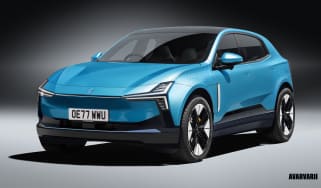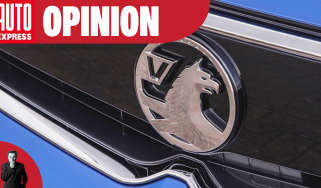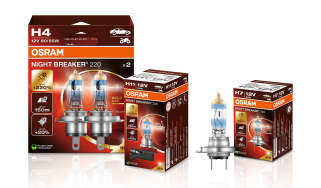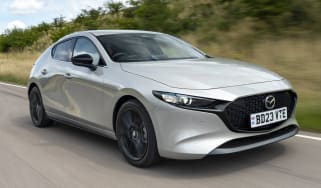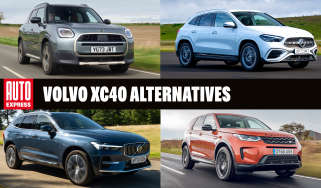Warning: your towbar could invalidate your car insurance
Drivers could be in hot water if they don’t declare if a towbar is fitted when buying car insurance
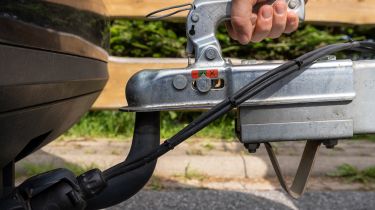
Drivers could be at risk of invalidating their insurance by not declaring that their car is fitted with a towbar – and little information is being provided by insurance sales websites to protect consumers.
One desperate driver contacted Auto Express to say they were facing a six-figure bill after their insurer, Allianz-owned Flow, cancelled their policy following an accident, on the grounds that the driver had failed to list his car’s towbar as a modification when purchasing cover. This was in spite of the fact that the towbar had no bearing on the accident, and was a removable type that wasn’t even fitted to the car when the smash happened.
The driver, who purchased the Flow insurance policy via the Money Supermarket website, told us he selected the ‘unmodified’ option when applying for quotes, having clicked on the website’s help link to determine what the question meant.
Money Supermarket confirmed the wording of its pop-up help box, which states: “What does this [modification question] mean? If you or a previous owner has made a change from the manufacturer’s original specification, such as alloy wheels, air-conditioning, bodywork, exhaust system or tinted windows, add it here. If you’re unsure if your car has been modified, check its previous history to find out.”
We also looked at rival insurance comparison site Compare the Market, and its modifications guidance to insurance applicants is similarly vague. It states simply: “Modifications are changes to the car’s original specification. These can be mechanical or cosmetic changes inside or outside the car.” Compare the Market also suggests how owners can find out whether or not their car has been modified: “Check any documents you inherited when you purchased the car. You can also speak to the insurance provider if you’re unsure.”
Neither website’s buying journey provides easy or obvious routes to information about whether a towbar is a relevant modification to a car’s original specification from an insurance perspective. Nor is there any clear link to information about the potentially devastating consequences of not meeting the requirement to notify insurers if your car is fitted with one.
“I am at my wit’s end in a nine-month dispute,” the unfortunate driver told us. “Following a routine vehicle collision, it (Flow) has refused to honour my insurance at the last minute, leaving me with a potential six-figure cost, and the incredible stress and anxiety this has caused me and my family.”
To make matters worse, after the lengthy dispute with Flow/Allianz, a Financial Ombudsman Service (FOS) decision found in favour of the insurance company. The Ombudsman cited the Consumer Insurance Disclosure and Representations Act on ‘misrepresentation’, which applies when information provided by the consumer to the insurer is incomplete or misleading, be it “carelessly, deliberately or recklessly”.
Meanwhile, the Financial Conduct Authority (FCA), which sets the rules for financial services companies, told us: “We expect insurers and intermediaries to ask customers clear questions when they buy their policies. They must also handle claims fairly and follow the law. This means that if a customer took reasonable care in answering an insurer’s questions, the claim should be met in line with the policy. The law requires firms to give consumers the information they need, at the right time, in a way they can understand.”
A Money SuperMarket spokesperson told us: “We’re confident that the supporting information we provide in our customer journey satisfies the FCA’s Consumer Duty requirements.” And an Allianz/Flow statement pointed to the Ombudsman decision: “Alongside FOS, we believe the question was clear and specific enough, and as [the reader] volunteered that he paid for the towbar to be professionally fitted, he was aware that he made changes to the vehicle from its standard specification,” the insurer told us.
Auto Express opinion
We think the current wording typically shared on insurance sales websites around ‘modifications’ is a trap set for the unwary. Insurance sales and comparison sites should offer greater clarity and detail on what constitutes a modification – especially in relation to towbars, as we have seen – and provide specific information on the potential risks of getting a declaration wrong.
Allianz/Flow has told the Ombudsman it wouldn’t have offered cover in the case of the driver who contacted Auto Express, had it known a towbar was fitted, yet it failed to ask a single, straightforward question to find out: “Is this vehicle fitted with a towbar?”
The Ombudsman determined that the driver was careless in not telling Flow about the towbar fitment, on the basis that the driver himself had the towbar installed and thus must have known his car was ‘modified’. However, we at Auto Express think it’s unreasonable for insurers, the FOS or FCA to expect an average customer to know that fitting a removable towbar is a type of modification that could lead to a cancelled policy.
We also think that if an insurance company offers a policy it knows doesn’t cover cars fitted with towbars, then it has a responsibility to make that exception clear to potential customers before taking their money. We’d like to think it would also ask potential customers whether their cars have towbars fitted, before issuing policies at all.
As a result, Auto Express has written to the FCA asking for an investigation into the provision and quality of information and advice offered by online insurance sales portals and websites. We’re also asking for a view on whether the Ombudsman’s decision in the case of the driver who wrote to us, accurately reflects the FCA’s own interpretation of its rules.
The impact on the reader involved has been considerable. He told us: “Aside from being without the car since February, the concern and stress of arguing this coupled with the colossal consequences have caused severe anxiety and depression (requiring medication) and other health implications, let alone weeks of sleepless nights.”
“The impact of this decision will leave us in monumental financial debt and a heavily limited ability to procure future insurance if we are ever able to afford another car.”
Following our intervention, Allianz/Flow told us that it wouldn’t be seeking to reclaim third-party costs from the driver who contacted us, even though it was entitled to do so following the Ombudsman’s decision. The driver previously told us Allianz/Flow had indicated he would be liable for all third-party costs, plus the insurer’s own internal costs, so this news provided him with some relief.
However, we also told the insurer we hoped it would reinstate cover for the driver, as well as settling the third-party claims in his case. We said we think Allianz/Flow does not currently appear to be acting in good faith with its customer, given the lack of clarity of information provided on towbar fitment at the point of sale. Indeed, it appears to us as if Flow has jumped on a ‘small print’ infraction – one that has no bearing on the claim itself – simply in order to avoid a payout.
It's good news! This driver has now received a payout...



